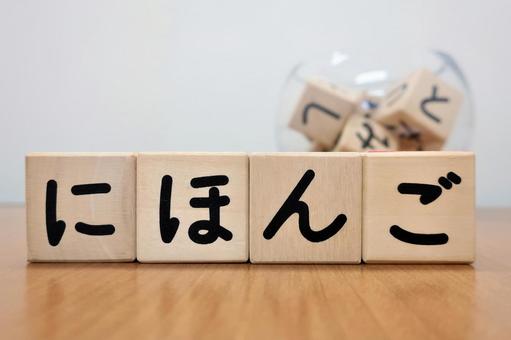2022.12.15
Reasons why foreigners cannot work in factories

Read this article to study Japanese and get JLPT N1
Factory job is one of the most popular jobs for foreigners in Japan.
Recently, many foreigners are seen working in factories of various kinds and types.
Companies are finding it difficult to secure human resources to work in factories, and the number of workers in factory is decreasing.
Therefore, the demand for factory workers is high and the employment rate is relatively high.
Because factory jobs are simple and easy to do, they are very popular among foreigners who cannot speak Japanese well or who have just arrived in Japan.
Unfortunately, there are many foreigners who cannot work in factories.
In this article, we will explain why many foreigners cannot work in factories and how they can do so.
Visa problem

First of all, the most reason why foreigners cannot work in factories is visa.
This is because the work in factories is simple, and there are not many foreign nationals with visas that allow them to perform simple work.
Most foreign nationals working in Japan have a Engineer/Specialist in Humanities/International Services, which does not allow them to engage in simple, short-term work in factories.
What is Engineer/Specialist in Humanities/International Services?
This visa allows you to work in a variety of industries based on the premise that you will be able to work in Japan using the skills and knowledge you have acquired at your university or job in your home country, and using English and other languages.
Simple work such as factory work is not allowed with this visa, as it is regarded as not being able to make use of your experience in your country.
The following are the types of jobs that can be performed with the Engineer/Specialist in Humanities/International Services.
■Technology
design engineering, blue-collar occupations such as IT engineers and production technology
■Human knowledge
white-collar occupations such as sales, accounting, marketing, etc.
■International business
jobs that make use of language skills, such as interpreting, language teaching, etc.
In the case of mechanical and electrical engineers, such as design engineers and production control engineers, they may be able to perform simple tasks in factory workplaces, but their main job is technical work such as design engineering.
It is necessary to make adjustments to the work schedule, for example, 70% of the work is design work and 30% of the work is simple, standardized work.
Even for engineers, please note that if you are only doing simple, unskilled work, you will be considered to be illegally employed and may be subject to punishment.
What kind of visa is required for a factory factory?

The following is an explanation of the types of visas that allow you to work in a factory.
If you have one of the following types of visas, you can work in a factory (simple, short-run work).
If you are a foreigner with the following visas, you can work without work restrictions like Japanese people.
Permanent Resident Visa
Long Term Resident Visa
Spouse Visa
Refugee visa
If you have one of the above four visas, you will be treated the same as a Japanese national and there will be no work restrictions.
You can work in any kind of work, from simple manual labor to truck drivers.
Refugee visas do not have the same work restrictions as refugee visas, but they do have language barriers.
Although it is not necessary to have a high level of Japanese in factory work, if you cannot communicate to some extent, you will not be hired because foreigners will not be able to give instructions to foreign workers.
If you work part-time, you can work in a factory

In fact, you can work at the factory as a part-time worker.
You can work as a full-time employee and work at the factory on weekends and other days.
Students and other part-time workers can also engage in simple and routine work in factories.
If you obtain a permission from the Immigration to engage in activities other than those permitted under the status of residence, you can work part-time within 28 hours per week.
Permission to engage in activities other than those permitted under the status of residence: Permission to engage in activities under a status of residence different from the status of residence.
Many foreign students who attend Japanese language schools are working in convenience stores and other places, and they too have permission to engage in activities outside their visa status.
For example, a student’s visa status is “Student”.
The purpose of international students coming to Japan is to study.
Any other activities are not acceptable.
However, if you obtain a “permission to engage in activities other than those permitted under the status of residence”, you can engage in activities other than those permitted under the status of residence, such as working up to 28 hours a week.
As a side note, ALTs and others who work as English teachers in elementary schools and junior high schools are not allowed to work as English conversation instructors in English conversation classes(Eikaiwa).
The status of residence of English teachers at elementary and junior high schools is “Education”.
The status of residence of Eikaiwa, an English conversation instructor at Eikaiwa is “Worker status”.
In other words, a foreign teacher working at a junior high school can work as an instructor at an English conversation class if the hours are not more than 28 hours per week after obtaining a permission for activities other than those permitted by the school’s regulations.
It is very complicated.
How can I work in a factory?

If your visa is aEngineer/Specialist in Humanities/International Services, you can work at a factory or other facility by changing your visa status to a specific skilled visa.
However, if you wish to change your visa status to a specific skill visa, you must take a test.
Engineer/Specialist in Humanities/International Services is better because there are many more industries in which a person can work with a Technical, Humanities, or International Business visa.
If you obtain a permanent residence visa or marry a Japanese national, you will be granted a spouse visa and will be able to work in factories, factories, etc.
Factories are short of human resources due to labor shortages.
Many foreign nationals are interested in working in the factory.
However, due to visa issues, we are faced with the dilemma of not being able to hire people even if we wanted to, and not being able to hire people even if we wanted to.
I am very doubtful why so many foreigners cannot work in factories when there are so many foreigners with Engineer/Specialist in Humanities/International Services and so many foreigners who want to work in factories.
The purpose of this project is to employ highly qualified foreign nationals in order to reduce labor shortages, but if they are not allowed to work due to visa restrictions, it is a complete reversal of the original plan.
The Japanese language is very important

As long as you work in Japan, it is necessary to communicate with Japanese people in Japanese.
Therefore, a high level of Japanese is required for any job.
In the case of English conversation instructors, N5 is also acceptable because there is no need to speak Japanese.
There are also technical jobs available for engineers and other technical workers at the N3 level.
However, most jobs require N1 level conversational skills.
Of course, N1 certification is a must.
If you want to make use of what you have learned and experienced in your home country in Japan, you should first obtain the N1 certificate.

